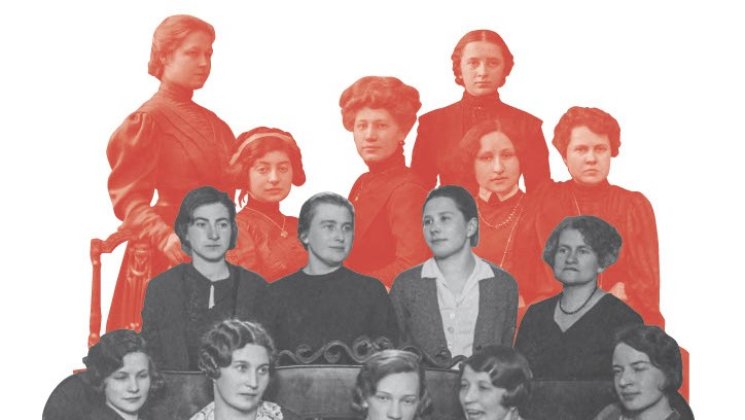-
Faculty of Arts and HumanitiesDean's Office, Faculty of Arts and HumanitiesJakobi 2, r 116-121 51005 Tartu linn, Tartu linn, Tartumaa EST0Institute of History and ArchaeologyJakobi 2 51005 Tartu linn, Tartu linn, Tartumaa EST0Institute of Estonian and General LinguisticsJakobi 2, IV korrus 51005 Tartu linn, Tartu linn, Tartumaa ESTInstitute of Philosophy and SemioticsJakobi 2, III korrus, ruumid 302-337 51005 Tartu linn, Tartu linn, Tartumaa EST0Institute of Cultural ResearchÜlikooli 16 51003 Tartu linn, Tartu linn, Tartumaa EST0Institute of Foreign Languages and CulturesLossi 3 51003 Tartu linn, Tartu linn, Tartumaa EST0School of Theology and Religious StudiesÜlikooli 18 50090 Tartu linn, Tartu linn, Tartumaa EST0Viljandi Culture AcademyPosti 1 71004 Viljandi linn, Viljandimaa EST0Professors emeritus, Faculty of Arts and Humanities0Associate Professors emeritus, Faculty of Arts and Humanities0Faculty of Social SciencesDean's Office, Faculty of Social SciencesLossi 36 51003 Tartu linn, Tartu linn, Tartumaa EST0Institute of EducationJakobi 5 51005 Tartu linn, Tartu linn, Tartumaa EST0Johan Skytte Institute of Political StudiesLossi 36, ruum 301 51003 Tartu linn, Tartu linn, Tartumaa EST0School of Economics and Business AdministrationNarva mnt 18 51009 Tartu linn, Tartu linn, Tartumaa EST0Institute of PsychologyNäituse 2 50409 Tartu linn, Tartu linn, Tartumaa EST0School of LawNäituse 20 - 324 50409 Tartu linn, Tartu linn, Tartumaa EST0Institute of Social StudiesLossi 36 51003 Tartu linn, Tartu linn, Tartumaa EST0Narva CollegeRaekoja plats 2 20307 Narva linn, Ida-Virumaa EST0Pärnu CollegeRingi 35 80012 Pärnu linn, Pärnu linn, Pärnumaa EST0Professors emeritus, Faculty of Social Sciences0associate Professors emeritus, Faculty of Social Sciences0Faculty of MedicineDean's Office, Faculty of MedicineRavila 19 50411 Tartu linn, Tartu linn, Tartumaa ESTInstitute of Biomedicine and Translational MedicineBiomeedikum, Ravila 19 50411 Tartu linn, Tartu linn, Tartumaa ESTInstitute of PharmacyNooruse 1 50411 Tartu linn, Tartu linn, Tartumaa ESTInstitute of DentistryL. Puusepa 1a 50406 Tartu linn, Tartu linn, Tartumaa ESTInstitute of Clinical MedicineL. Puusepa 8 50406 Tartu linn, Tartu linn, Tartumaa ESTInstitute of Family Medicine and Public HealthRavila 19 50411 Tartu linn, Tartu linn, Tartumaa ESTInstitute of Sport Sciences and PhysiotherapyUjula 4 51008 Tartu linn, Tartu linn, Tartumaa ESTprofessors emeritus, Faculty of Medicine0associate Professors emeritus, Faculty of Medicine0Faculty of Science and TechnologyDean's Office, Faculty of Science and TechnologyVanemuise 46 - 208 51003 Tartu linn, Tartu linn, Tartumaa ESTInstitute of Computer ScienceNarva mnt 18 51009 Tartu linn, Tartu linn, Tartumaa ESTInstitute of GenomicsRiia 23b/2 51010 Tartu linn, Tartu linn, Tartumaa ESTEstonian Marine Institute0Institute of PhysicsInstitute of ChemistryRavila 14a 50411 Tartu linn, Tartu linn, Tartumaa ESTInstitute of Mathematics and StatisticsNarva mnt 18 51009 Tartu linn, Tartu linn, Tartumaa EST0Institute of Molecular and Cell BiologyRiia 23, 23b - 134 51010 Tartu linn, Tartu linn, Tartumaa ESTTartu ObservatoryObservatooriumi 1 61602 Tõravere alevik, Nõo vald, Tartumaa EST0Institute of TechnologyNooruse 1 50411 Tartu linn, Tartu linn, Tartumaa ESTInstitute of Ecology and Earth SciencesJ. Liivi tn 2 50409 Tartu linn, Tartu linn, Tartumaa ESTprofessors emeritus, Faculty of Science and Technology0associate Professors emeritus, Faculty of Science and Technology0Area of Academic SecretaryHuman Resources OfficeÜlikooli 18, ruumid 302 ja 304 50090 Tartu linn, Tartu linn, Tartumaa EST0Area of Head of FinanceFinance Office0Area of Director of AdministrationInformation Technology Office0Administrative OfficeÜlikooli 17 (III korrus) 51005 Tartu linn, Tartu linn, Tartumaa EST0Estates Office0Marketing and Communication OfficeÜlikooli 18, ruumid 102, 104, 209, 210 50090 Tartu linn, Tartu linn, Tartumaa EST0Area of Vice Rector for Academic AffairsOffice of Academic AffairsUniversity of Tartu Youth AcademyUppsala 10 51003 Tartu linn, Tartu linn, Tartumaa ESTStudent Union OfficeÜlikooli 18b 51005 Tartu linn, Tartu linn, Tartumaa EST0Centre for Learning and TeachingArea of Vice Rector for ResearchUniversity of Tartu LibraryW. Struve 1 50091 Tartu linn, Tartu linn, Tartumaa ESTGrant OfficeArea of Vice Rector for DevelopmentCentre for Entrepreneurship and InnovationNarva mnt 18 51009 Tartu linn, Tartu linn, Tartumaa EST0University of Tartu Natural History Museum and Botanical GardenVanemuise 46 51003 Tartu linn, Tartu linn, Tartumaa EST0International Cooperation and Protocol Office0University of Tartu MuseumLossi 25 51003 Tartu linn, Tartu linn, Tartumaa EST0Area of RectorRector's Strategy OfficeInternal Audit Office
Open Call: Three Full-Time Paid PhD Positions in Theology and Religious Studies
Three full-time four-year paid PhD positions are available for theology and religious studies at the School of Theology and Religious Studies, University of Tartu.
All three are open positions for specializing in Theology or in Religious Studies with no predetermined research topic or focus. Research at the School is particularly active in the areas of Ancient Near East studies, Biblical Studies, Orthodox Christianity, Secularization and Non-religion, Contemporary Religious Developments, Dialogue of Science and Religion, Religious Education, Method and Theory in the Study of Religion and the History of Christianity in Estonia, but is not limited to these. One can propose a topic from some other research area as well. Applicants should contact their potential supervisors before applying. One can find more about current research at the School here and find the profiles and contacts of the academic staff here.
Application deadline for all candidates with a master’s degree from a university outside Estonia is May 15, 2024 (application deadline for all candidates with a master’s degree from an Estonian university is June 15). All applications have to be submitted through the application portal. Successful applicants will begin their studies in September 2024.
Requirements
To apply one needs to have a master’s degree or an equivalent. While many PhD students at the School have a MA in Theology or Religious Studies, this is not strictly required. All applicants must submit an official copy of the diploma and the diploma supplement of the BA and MA diplomas in their original language and official translations of the diplomas and diploma supplements into English if applicable. If you are graduating master’s studies in 2024, you must submit your most recent transcript and you must have graduated your studies by August 2024 (and must have submitted your graduation documents by mid-August 2024). In addition, it is also necessary to submit proof of English language proficiency, a copy of the passport personal details page and a CV. Most importantly, all applicants must submit a Doctoral Thesis Project.
Application Process
All applicants must submit a Doctoral Thesis Project that should be about five pages in length (12500 characters with spaces). It must clarify the research topic, explain the choice of the topic, present an overview of previous research on the topic, explain methodology, the preliminary structure of the thesis, potential source materials and a preliminary timetable of the research project over the course of the four years. Selected candidates will be invited to an online interview where they need to present and defend their project to the selection committee. Online interviews take place on June 19. For more information about thesis project and interview requirements see here and here.
About the Position
The successful candidates will be employed as Junior Research Fellows with a student status at the School of Theology and Religious Studies, University of Tartu. This makes you eligible for mobility grants as a student, while you also receive the salary of a Junior Research Fellow. In 2024 the gross salary for a Junior Research Fellow is 1830 euros per month (that is about 1450 euros per month after taxes), but this is likely to increase in subsequent years. The position will be performance-evaluated every year and will last four years, provided that you reach your planned PhD study milestones every year. The Junior Research Fellow is expected to be an active participant of the research activities at the School. For more on the status and funding of the positions, see here.
General information about PhD studies at the University of Tartu



This spring, the University of Tartu will open 189 doctoral student places

An Evening Discussion with Renowned Author Sofi Oksanen on 23 April

